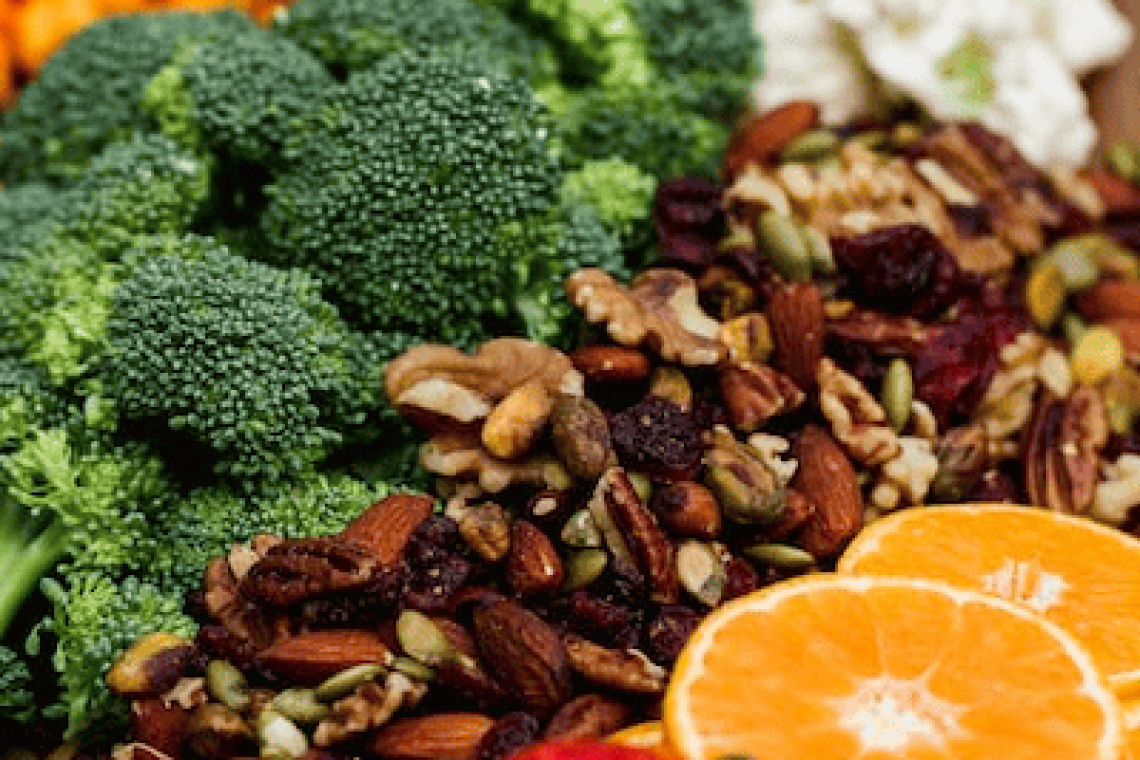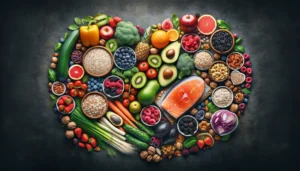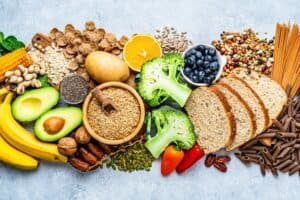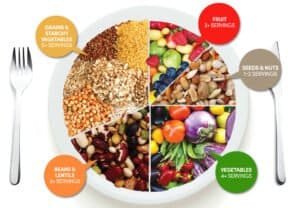Introduction
In a world where health is often taken for granted, your immune system is your unsung hero. It’s your body’s natural defense mechanism against pathogens, and it works tirelessly to keep you in optimal health. But how can you return the favour? The answer is simpler than you might think: food. In this comprehensive guide, we’ll delve deep into the best foods for supporting your natural immunity, backed by science.
Disclaimer!
Before we even get into it… Food cannot ‘boost’ immunity as the title suggests. In fact, I’m rather sick of seeing this inaccurate claim all over the internet and social media. So, I put in that tag to draw you in so that I can make my point. Sneaky, I know.
You see, your immune system is an army, made up of lots of individual parts. It’s not one giant shield where things like supplements or food can magically patch up and make sure there are no holes that pathogens can get through.
If you were to really simplify it down, we have an innate immune system and the immunity we acquire. The innate immune system is the general army. While the one we acquire are the specialists within our defence force. They’re trained up by the body through exposure to bugs and by vaccinations.
Where food and liftsyle come in is there ability to feed the entire body, and it’s systems, to better support normal functioning. If your immune system is functioning as expected, then we’re less likely to get sick. When it’s dampened down for some reason, we’re more likely to get sick.
Why Focus on Immunity?
- Prevention: Better immunity helps in preventing infections.
- Longevity: Stronger immune system can contribute to a longer, healthier life.
- Quality of Life: Fewer illnesses mean more time to enjoy life.
Immune System Fundamentals
The immune system is not a single entity but a complex interplay of cells, tissues, and organs.
| Component | Role |
|---|---|
| White Blood Cells | These are the foot soldiers, identifying and neutralising pathogens. |
| Organs etc | The skin is our first line of defense against microbes. They produce and secrete antimicrobial compounds and it houses immune cells. Bone marrow copntains stem cells that turn into various different cells including the above mentioned foot soldiers. Let’s not forget to mention the thymus, spleen, lymphatic system, lymph nodes and blood stream which are all part of it too. |
Lifestyle and Immunity
Your lifestyle choices can either support or dampen the normal functioning of your immune system.
- Balanced Diet: A diet rich in a variety of fruits, vegetables, lean proteins, healthy fats and whole grains ensures that your body gets all the essential nutrients.
- Adequate Sleep: Aim for 7-9 hours of quality sleep each night. Lack of sleep can lead to increased susceptibility to illness.
- Stress Management: Stress hormones like cortisol can suppress immune function. Techniques like mindfulness and regular exercise can help manage stress.
For more on sleep, check out our 10 Tips for Better Sleep.
Nutritional Essentials for Immune Health
Nutrition is the cornerstone of a robust immune system. Let’s break down the key nutrients and their food sources.

Vitamin A
Are we eating enough? Mean daily intake of total vitamin A was below the Average Requirement (AR) in 16.6% of women (aged 18-64y).
Food Sources: Carrots, sweet potatoes, spinach, beef liver, herring
Recommended Daily Allowance: 900 mcg for men, 700 mcg for women
Benefits: Vitamin A is crucial for maintaining the integrity of the skin and mucous membranes, which act as the body’s first line of defense.
How to Consume: Try a carrot soup, spinach and eggs, or a sweet potato bake, Hulks omelette
Vitamin C
Food Sources: Citrus fruits like oranges, berries, bell peppers
Recommended Daily Allowance: 90 mg for men, 75 mg for women
Benefits: Vitamin C is an antioxidant that helps to regenerate vitamin E and other antioxidants, as well as support wound healing.
How to Consume: Orange chicken, strawberries with breakfast, red pepper pasta, chia jam
Fun Fact: Although a vitamin C supplement is often touted as a remedy for the common cold, research shows that for most people vitamin C supplements do not reduce the risk of catching a cold. However, it may help you recover from a cold ever-so-slightly faster and have slightly milder symptoms. You may have noticed I said ‘most people’, well let me explain. If you’re an athlete or exposed to extreme cold environments, then it might be worth consider to help reduce the risk of getting a cold. However, it’s incredibly important to discuss this with your Registered Dietitian as it’s not suitable for everyone.
Vitamin D
Are we getting enough? Approximately half the population had < 50 nm/l.
Food Sources: Oily fish, eggs, liver supplements and fortified foods
Recommended Supplement dose: 5 mcg for breastfed babies or babies receiving less than 300mls of formula, 5 mcg for kids aged 1 to 4 years old, 10 mcg for healthy children aged 5 year to 11 years and 15mcg per day for most teenagers and adults living in Ireland.
Benefits: Vitamin D has a central role in immunity. However, recently Vitamin D deficiency was discovered to be associated with significantly higher levels of inflammation in the body, as per the research by Dr Eamon Laird.
How to Consume: Try eating more salmon e.g. with pasta or eggs
Zinc
Are we eating enough? Low zinc intake may be prevalent in as much as 87% of women in Ireland.
Food Sources: Oysters, beef, crab, pumpkin seeds, pork, turkey, prawns, cheese.
Recommended Daily Allowance: 11 mg for men, 8 mg for women (11 mg if pregnant, 12 mg if breastfeeding)
Benefits: Zinc is essential for immune cell function and cell signaling.
How to Consume: Cheesey pasta, pumpkin seed chicken, prawn stir fry, crab linguine
Fun Fact: Some studies have shown that zinc lozenges and syrup speed up the recovery from the common cold if you start taking them when you notice you have one. However, not all supplements are created equal and you need to get the dose right. Plus, it may not be suitable for you to take a supplement. Therefore, it’s important to talk with your Registered Dietitian before you even consider this option for yourself.

Gut-Immune Connection
The gut is often called the “second brain”. It has a direct effect on the stomach and intestines. We’ve all felt anxious or nervous and experienced these emotions in our stomach and through gut responses e.g. needing to go to the loo. However, there there is communication from the gut to the brain that is influenced by the gastrointestinal microbiota. The microbiome refers to the trillions of bacteria as well as viruses and fungi that are at home in our body. They communicate with our brain and well as other systems within the body.
Did you know that the gut microbiome also plays a central role in immunity? A varied gut flora can enhance your body’s ability to fight off infections. It plays a role in regulating the immune systems so that it responds to pathogens but doens’t attack our body’s healthy tissues. To dive deeper into this topic, our Essentials of Healthy Eating course is a treasure trove of information.
FAQ
What Foods Are Best for Supporting Immunity?
Fruits and vegetables rich in vitamins A, C, and other antioxidants are excellent for supporting immunity.
How Can I Get Personalized Nutritional Advice?
For tailored advice, book a 1-to-1 appointment with one of our registered dietitians.
Is There an Online Course I Can Take?
Yes, our Essentials of Healthy Eating course offers a comprehensive look into nutrition and its impact on health.
How Can I Contact You for More Information?
Visit our Contact Us page for more details.











